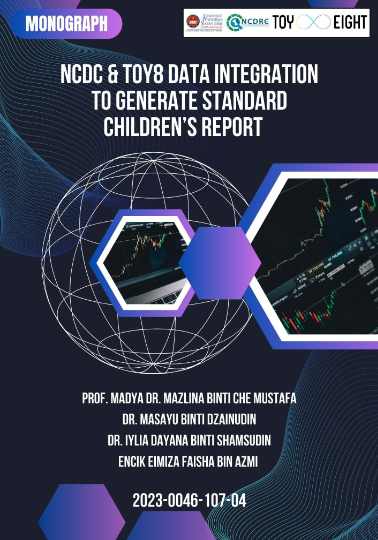

Abdul Halim Masnan
2015-0024-106-04-1
This study was aimed to evaluate the existing ECCE programs and matters concerning roles and responsibilities of stakeholders in the ECCE industry in Malaysia as well as to propose a Quality Malaysian ECCE Curriculum Framework and recommendations for policies, legislation and implementation for the ECCE industry. The evaluation were constructed to look into the ECCE curriculum specifically in terms of curriculum content, curriculum review, philosophy and core principles, issues and challenges and curriculum implementation. Development of the framework is based on the data and evidence from the field research. In fact, several international curriculum such as those from United Kingdom, Australia, Singapore and Japan were also studied to give an insight on ECCE implementation and best practices. This study employed a mixed- method approach in which both quantitative and qualitative research designs were utilised to address a total of twelve research questions. The interviews, observations and document analysis were used for qualitative method; whereas in quantitative method, survey study were employed to gain a deeper understanding of data and answering the research question. Three research instruments were used in this study which are questionnaires, interview known as ECCECI and observation. Data then were analyze using SPSS, NVivo and thematic analysis, respectively. Sampling for this study were carried out in such a way so that it would be representative of TASKA and TADIKA from all states in different agencies government and private centres. For quantitative part, there is variableness between TASKA and TADIKA practitioners’ perception on the quality of the Malaysian ECCE curriculum in terms of curriculum content, curriculum review, philosophy and core principles, issues and challenges and curriculum implementation. For qualitative part, findings showed there are few aspects that should be given more attention specifically the following aspects, namely; Technologically Appropriate Practices (TAP) is not fully implemented even TAP is one of the core principles in Malaysian ECCE curriculum. Some of the parents are observed to have a limited understanding and knowledge regarding the philosophy and core principles of ECCE. Sexual education and road safety should also be emphasized in the content of Malaysian ECCE curriculum. It is recommendable that the curriculum review should be done periodically and involve all stakeholders. Most of the teachers do not have adequate skills to support SEN in ECCE centers. Overall, the implementation of the Malaysian ECCE curriculum itself is perceived is satisfying based on PERMATA and KSPK curriculum.
Che Nidzam Che Ahmad | Hafsah Taha | Asmayati Yahaya | Saipolbarin Ramli | Masayu Dzainudin | Rosfizah Md. Taib | Zahyah Hanafi | Saedah Siraj | Mohd Mokhzani Ibrahim | Hasviniy Padmanathan | Norrulkamari Daud | Mohd Azizuddin Kastari | Nur Khairunnisa Mohd Fuzi | Che Siti Hajar Aisyah Che AbdulKhalil | Nurul Shakila Ahmad | Abdul Wahad | Harneeta Kaur Mallanhanse